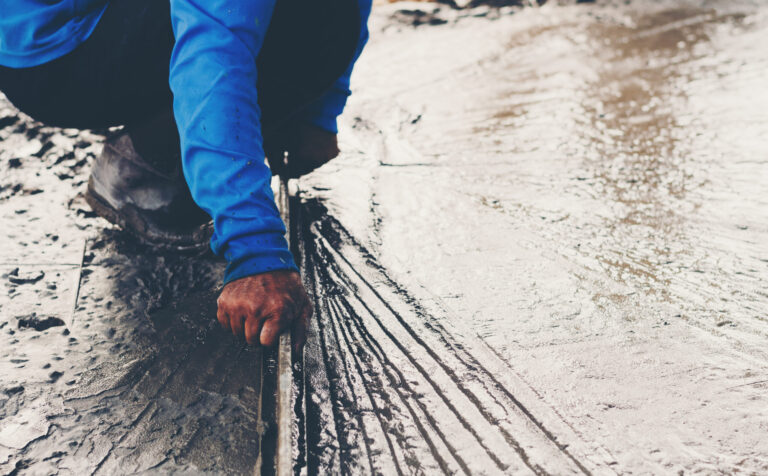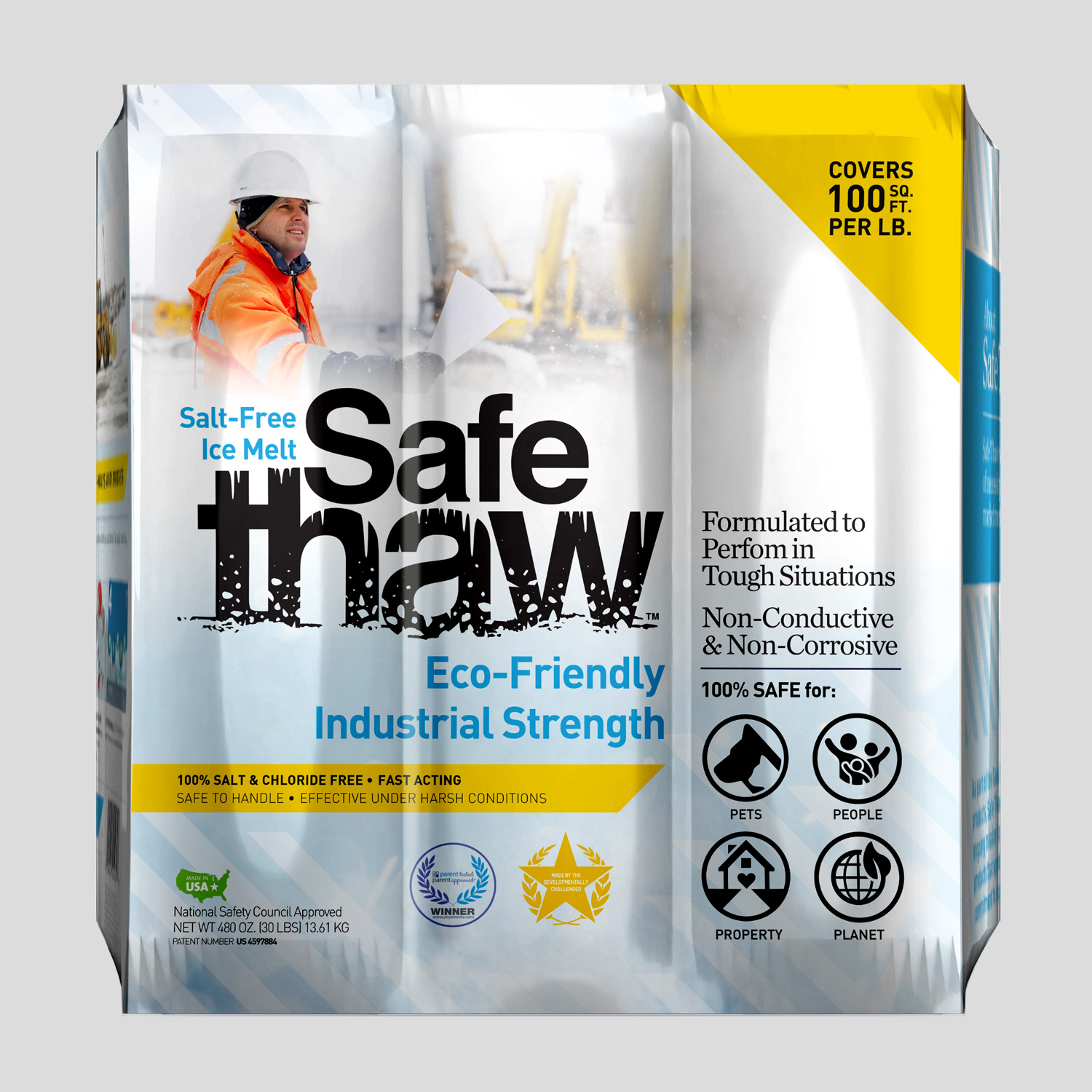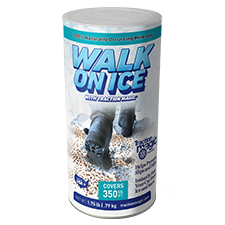Enviro Thaw: What Are Its Main Components

Winter can paint a pretty picture – cozy evenings, hot cocoa, snow angels. But with it comes the icy adversary: the frozen pathways that are not just inconvenient but treacherous. Enter “Enviro Thaw”, the eco-conscious solution to our winter woes. But what magic lies within this product? Let’s delve deep and explore its main components.

Safe Thaw
Safe Thaw was created as the ice management solution for tough winter environments. Ideal in commercial and industrial properties, shops, government agencies, bridges, and construction.
Why The Buzz Around Enviro Thaw?
Before we get into the nitty-gritty, it’s essential to understand why Enviro Thaw has garnered such attention. With increasing concerns about the environment and our impact on it, the need for eco-friendly solutions in every domain is palpable. Enviro Thaw answers this call in the realm of de-icing, providing an effective solution that doesn’t cost the Earth.
Unveiling The Components Of Enviro Thaw
It’s not just a fancy name; Enviro Thaw has been formulated to be kind to the environment while being ruthless to ice. Here’s a closer look at its main ingredients:
- Magnesium Chloride (Mag Chloride): Mag Chloride is a star player in the world of de-icers. Not only is it effective in melting ice, but it also operates at much lower temperatures compared to other salts. Its hygroscopic nature means it absorbs moisture and keeps the surface it’s applied to damp, preventing further ice formation.
- Potassium Acetate: A lesser-known but highly effective component, potassium acetate works wonders in lower temperatures. It breaks the bond between the ice and the surface, making it easier to remove the slush.
- Organic Carbohydrate Derived from Agricultural Resources: Now, that’s a mouthful! In simpler terms, these are eco-friendly ingredients derived from plants. They reduce the freezing point of water and offer a residual effect, preventing re-freezing for a more extended period.
A big point of concern however, is that all above chemical are big on corrosion. They take no time to corrode your concrete, metals, and other surfaces.
Why Not Just Salt?
Good old rock salt has been a go-to for many winters past. But while it’s cheap and readily available, it’s not always the kindest to our environment. Excess salt can run off into water bodies, affecting marine life. Moreover, it’s not effective in extremely low temperatures.
Enviro Thaw Vs. Safe Thaw: A Friendly Face-Off
While Enviro Thaw boasts of its eco-friendly credentials and effective components, there’s another contender in the ring: Safe Thaw. Designed as a chemical and toxin-free, industrial use ice melt, Safe Thaw is a non-corrosive ice melt that is safe for the environment. It’s especially recommended for those seeking a solution that’s gentle on surfaces and the environment. In essence, both products have their strengths, with Safe Thaw standing out for those wanting an entirely natural solution.
Magnesium Chloride for Driveway: Is It Really the Safer Choice?
Now that we’ve pulled apart Enviro Thaw’s ingredient list, let’s dig deeper into one of its central players: magnesium chloride for driveway use. On paper, it seems appealing—effective in lower temperatures, less aggressive than sodium chloride, and often marketed as “eco-friendlier.” But here’s where homeowners need to ask a harder question: safe compared to what, and for how long?
When spread on your driveway, magnesium chloride lowers the freezing point of water and breaks up the ice bond. It does its job quickly, but the aftermath tells another story. Prolonged exposure can leach into your soil, altering its composition and stressing out vegetation. On top of that, it leaves behind a residue that pulls moisture, which can accelerate scaling and pitting on certain concrete surfaces.
So while magnesium chloride for driveway applications may look like a convenient middle ground between rock salt and newer eco-blends, it’s not without risks. The hidden maintenance costs creep up over time—something many homeowners discover only after winters of repeated use.
Is Magnesium Chloride Safe for Wood Decks and Concrete?
This is where things get trickier. Homeowners often ask: is magnesium chloride safe for wood decks? Or is magnesium chloride safe for concrete? The honest answer: not really.
On wood decks, magnesium chloride can pull out natural oils and moisture, leading to premature drying and splintering. If you’ve invested in a composite deck or stained wood finish, the residue can dull its appearance and invite long-term damage.
As for concrete—particularly newer slabs or decorative stamped surfaces—the risks are even more concerning. Magnesium chloride has a corrosive effect, especially during freeze-thaw cycles. Once moisture seeps into the pores of the concrete, the chemical reaction accelerates scaling and weakens the surface. The result? More cracks, more patching, and potentially higher replacement costs sooner than you expected.
So, while labels often push the idea that magnesium chloride is safe, the reality is more nuanced. It might be safer than rock salt in the short run, but that doesn’t mean it’s genuinely safe for your property in the long run.
Why “Safe” Should Mean Truly Non-Corrosive
It’s easy to get swept up by terms like “eco-friendly” or “less corrosive.” But when the question is about protecting your investment—your driveway, your wood deck, or even your landscaping—the definition of safe needs to be far stricter.
Products like Safe Thaw change the conversation entirely. Instead of weighing which salt blend is the “least damaging,” Safe Thaw removes the salts altogether. No chlorides, no corrosive after-effects, no silent buildup waiting to show cracks years down the road. Its formula is designed for industrial use but trusted in residential settings because it keeps every surface—from concrete to roofs to decks—free from ice without eating away at them.
That’s the real difference: it’s not about choosing between degrees of damage; it’s about stepping into a solution that eliminates the risk of damage completely.
Practical Scenarios Where Magnesium Chloride Falls Short
Let’s make it real. Imagine spreading magnesium chloride on a freshly poured driveway that hasn’t fully cured. The label might not warn you about its ion-exchange properties, but over the winter, you’ll begin to notice surface scaling. Or picture tossing it onto your backyard wood deck for traction—only to see faded boards and premature cracking by spring.
Even with gravel pathways, magnesium chloride can seep into the soil below, leading to vegetation loss or soil imbalance. And when it comes to pets, while often claimed as “pet safe,” prolonged paw contact can still cause irritation or dryness.
By contrast, Safe Thaw doesn’t ask you to gamble. It’s been engineered from the start to sidestep these scenarios—something magnesium chloride has never truly solved.
100% salt & chloride-free, fast acting Ice Management Solution
Conclusion: Don’t Settle for “Less Harmful”—Choose Truly Safe
Breaking down Enviro Thaw’s composition shows why products like magnesium chloride for driveway applications appear attractive at first glance. They’re marketed as less corrosive, more eco-friendly, and effective at low temperatures. But the deeper you look, the clearer it becomes that magnesium chloride is not the long-term answer. It can stress vegetation, corrode concrete, dull wood decks, and still pose risks to pets.
So when homeowners ask, is magnesium chloride safe for wood decks? Is magnesium chloride safe for concrete? Is magnesium chloride safe, period?—the honest truth is: only in comparison to harsher salts, not in absolute terms.
If the goal is protecting your property through harsh winters without hidden costs, the bar needs to be higher. And that’s where Safe Thaw consistently delivers. With a chloride-free, toxin-free formula, it’s not about choosing “the lesser evil”—it’s about eliminating the problem altogether. From residential driveways to commercial lots and even industrial facilities, Safe Thaw offers reliable ice melting without corrosion, without harm, and without compromise.
Because at the end of the day, winter safety should never come at the expense of your property, your pets, or the environment.
Try Also Our Other Winter Safety Products:
Safe Paw
The Original and #1 Selling Pet and Child Safe Ice Melt for over 20 years. Guaranteed environmentally safe –It won’t harm animals or children, and it won’t damage your property. That’s Safe Paw. Safe Paw can change how winter affects our planet.

Walk On Ice
The handy disposable canister can be taken everywhere, with the same 100% naturally occurring minerals that provide instant traction on ice or snow. Use it on sidewalks, steps, or as an instant traction agent for your car.



